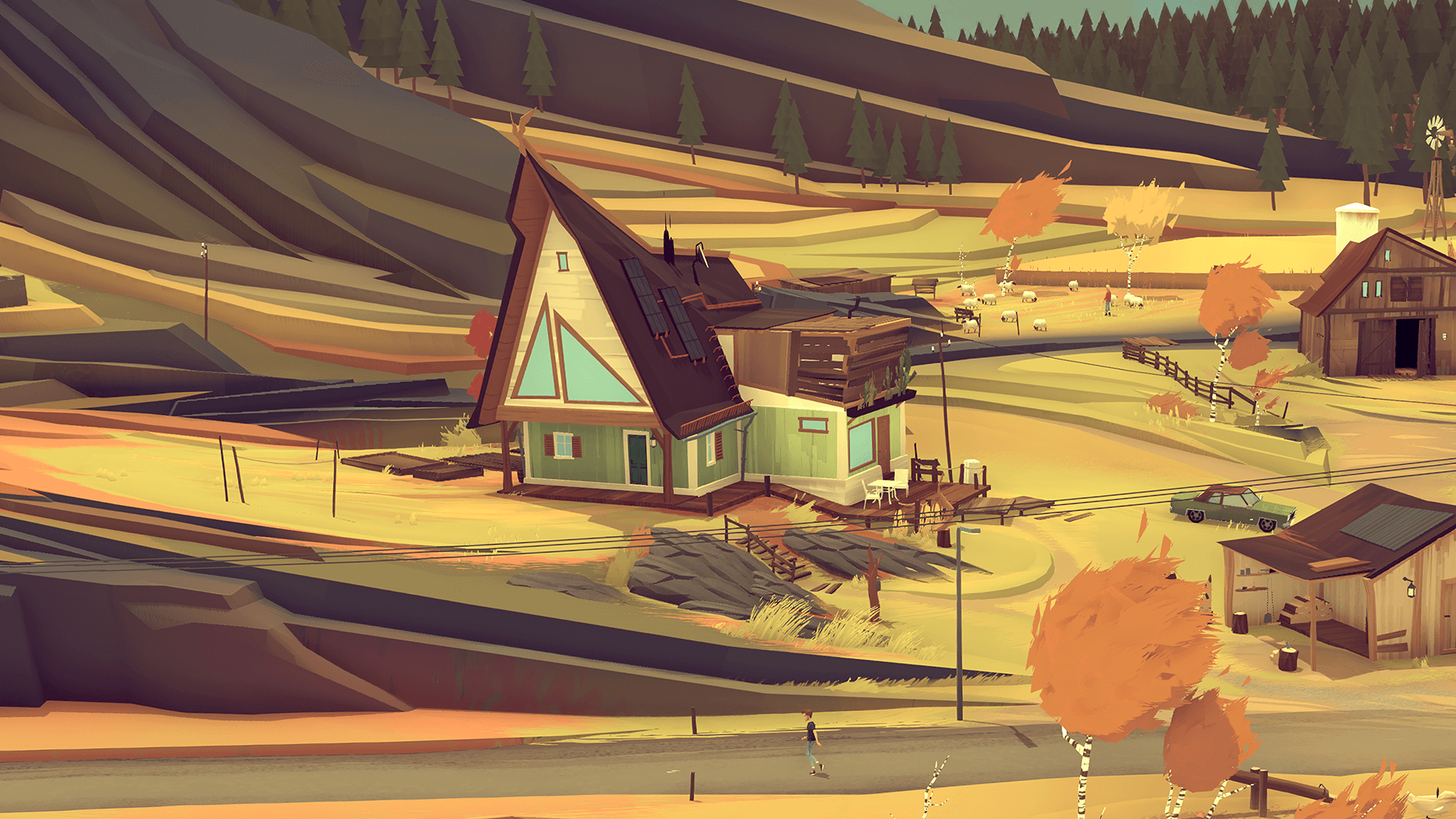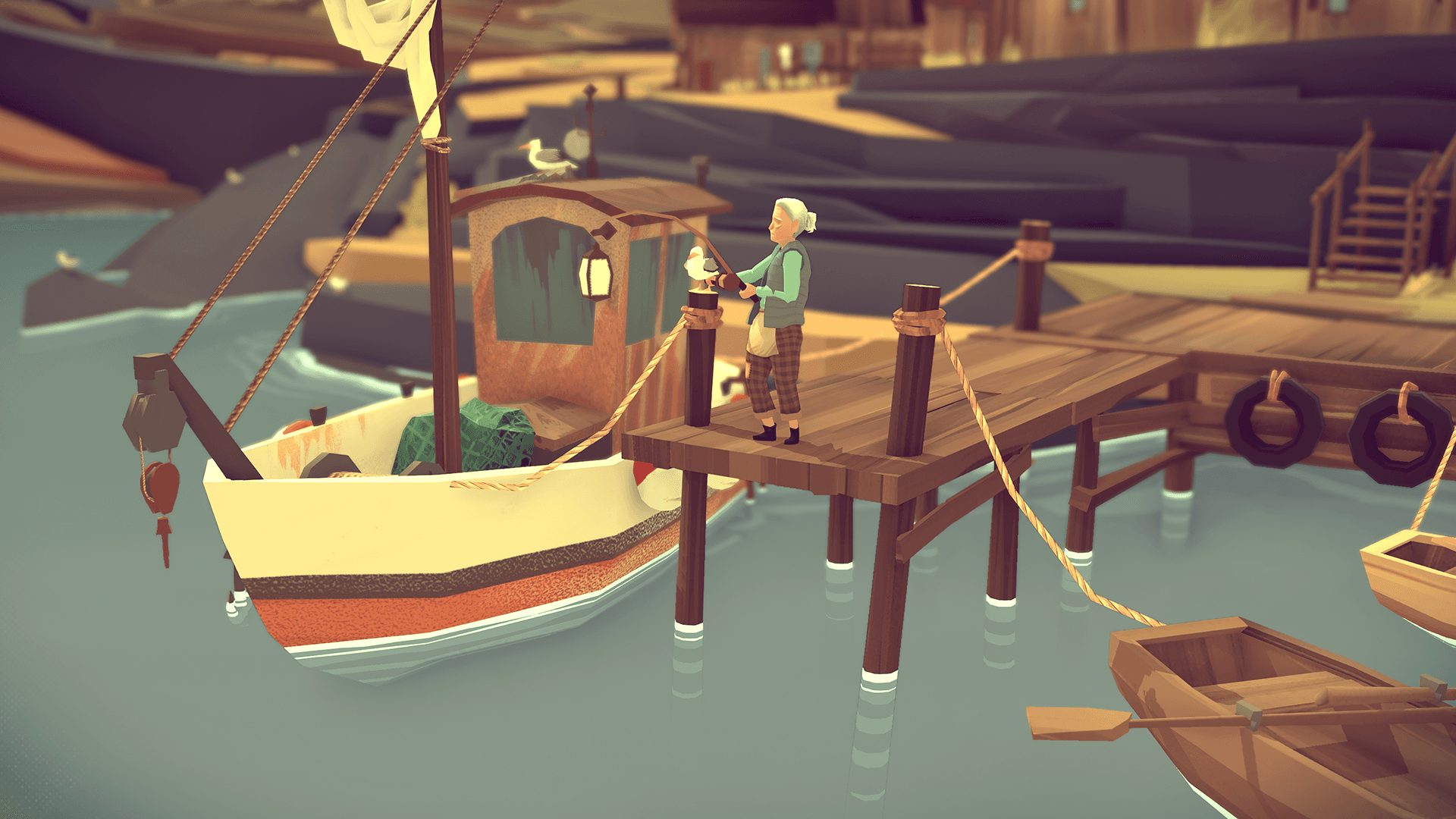WordPlayer: Closer The Distance's Empathy Toolbox Is Deeper Than Embodiment
Empathy as interaction

For as long as there have been digital games, there has been discussion about embodiment - the notion that when we play a game, we become the character. It's a complicated concept that has, at numerous junctures of discourse, been smashed down into something more simplistic. If you've read a lot of games criticism, you've seen a sentence like this before: "the thing that makes games interesting is that we inhabit the characters, which makes it easier to empathize with them".
This theory is at the crossroads of a thousand different discussions about what it means to play as (and/or with) a character, how ludonarrative dissonance (the disconnect between a game's story and action) operates when the player is given choice over their actions, and whether being in direct control of a character means that the game exerts more influence over the player. I've thought a lot about all of these discussions and arguments while playing Closer the Distance, because this is a distinctly disembodied game - and I think that's what makes it so effective at making me empathize with its characters.
Closer the Distance - the latest title from Osmotic Studios, best known for their excellent surveillance thriller Orwell - opens with a death. You spend the rest of the game ostensibly "playing" as the deceased, a young girl named Angela, whose life was cut tragically short in an accident just outside the tiny town of Yesterby, population 13-15 (depending on what day it is). The game follows the residents of the town - including her family, her friends, her boyfriend, and the folks who just knew her as the nice girl in the big house - as they deal with the aftermath of her death.

I've thought a lot about all of these discussions and arguments while playing Closer the Distance, because this is a distinctly disembodied game - and I think that's what makes it so effective at making me empathize with its characters.
As the player, you're controlling a cursor on the screen and a series of menus, and as the game progresses you gain the ability to "influence" a handful of people Angela was close to. That influence amounts to being able to tell them where to move, and how to tackle their personal list of objectives. You can decide how they choose their priorities, and when they take a moment for themselves or focus on supporting others.
Closer the Distance looks and feels a little like The Sims, but the experience feels more like a piece of immersive theater that you're directing. Characters go about their days in the town, grieving in their own ways, and while you have some control over how things play out there's plenty that you can't change. If you want, you can focus your attention on the characters you have no direct access to, watching as these people on Angela's periphery go about their days, dealing with the cloud of despair that has settled over the town.
You can switch who you're focused on at any time, but if two groups of characters are having conversations at once, you have to choose which one you're going to pay attention to. Life goes on in Yesterby regardless of how much you try to influence it, and if you don't influence characters they will mostly follow their own whims and instincts. If you don't give Gayla (Angela's physician) direct orders, she'll go for a run, cook dinner, spend time with her wife and distant stepson. Angela's sister Conny will try to make sense of her own grief as best she can. Her boyfriend, Zek, might spend an afternoon going on social media and listening to music. Characters will still talk, and spend time together, and try to move on with life in their own ways.

Closer the Distance looks and feels a little like The Sims, but the experience feels more like a piece of immersive theater that you're directing.
Closer the Distance very specifically situates you as an observer. Getting to know Yesterby means panning the camera over the town, working out where folks live, watching their relationships - there are menus explaining who does and doesn't like each other, but it's more intuitive to track this just by watching them talk. As much as you're guiding the direction of these characters, making choices for them and managing their time, it often feels like your main objective in Closer the Distance is to watch and listen, to bear witness to these characters and their lives.
The game's name is spot on - you get closer to the characters here and develop a deeper understanding of who they are, but you always do so from a distance. It's that distance, I think, that makes the game so effective. As an observer, you can't share in the grief of these characters. You can't pretend to understand what they're going through, because even though you're playing as Angela, you don't really know her - while you learn more about her in flashbacks, these are usually focused more on the people living with their memories than Angela herself. It's an interesting position to occupy as a player, one that keeps you on the outside but still connected to these people and their lives.
Your slight remove from the action makes the whole experience less oppressively grim than you might expect. Look, yes, watching Angela's family in the aftermath of her death is pretty upsetting, especially when mom Pia takes a quiet moment to cry, or father Axel immediately starts digging her grave, desperate to feel useful. But you're never locked in with a character's grief - you're an observer, coming and going as you please. It's an active choice to observe their mourning rituals, and through your limited abilities, you can influence the folks in town to try and help one another move through the enormous task of continuing to live. I always felt a little guilty switching out one view into another, because I wanted to know what was happening with everyone. But the game, thankfully, would not cater to that wish - it would lose its power if it had.

The game's name is spot on - you get closer to the characters here and develop a deeper understanding of who they are, but you always do so from a distance. It's that distance, I think, that makes the game so effective.
There's no main character that you're meant to form a specific relationship with, or player surrogate who is learning the rules alongside them, and even the choices you can provoke characters to make don't really feel like you taking direct control of their lives, more helping them to understand how they already felt. And through that, it's hard not to empathize with these characters - the ones trying their best to move forward past their pain, the ones wallowing in it, the people who were already stricken with different forms of grief and pain before this happened.
You are not a "god" in Closer the Distance, like you are in The Sims or many other games played from an overhead perspective. You're not even a ghost. Your job as a player isn't just to guide these characters, it's to empathize with them, to choose what you will bear witness to. It's a unique relationship, and one that shows that games can tap into deep emotional wells without needing to give the player a "body" to experience them through.